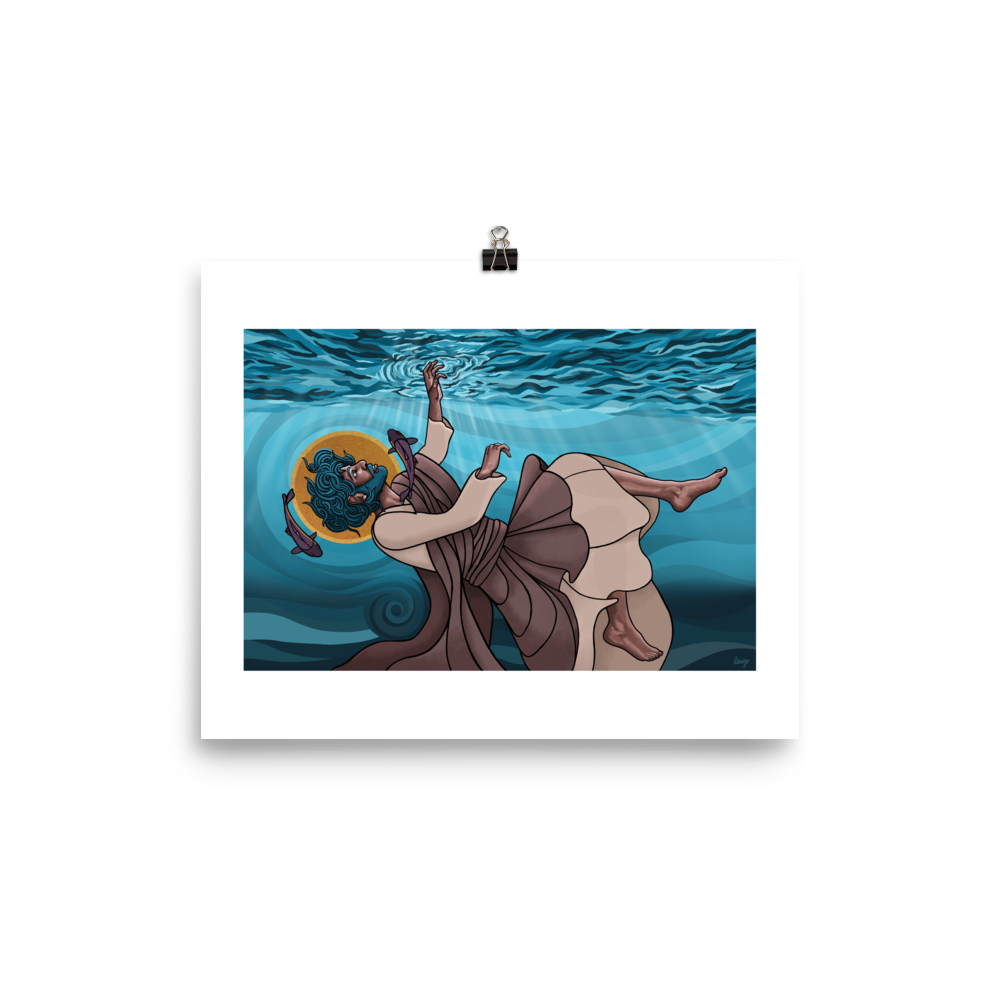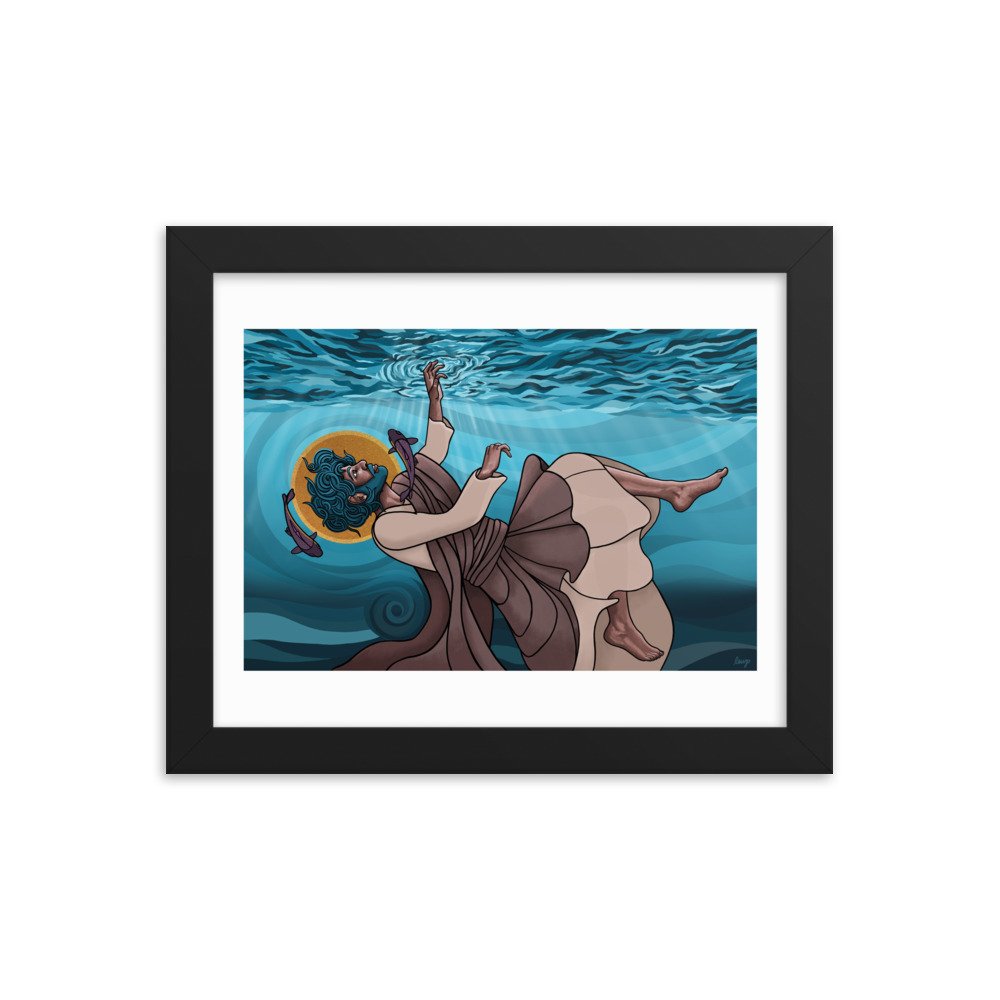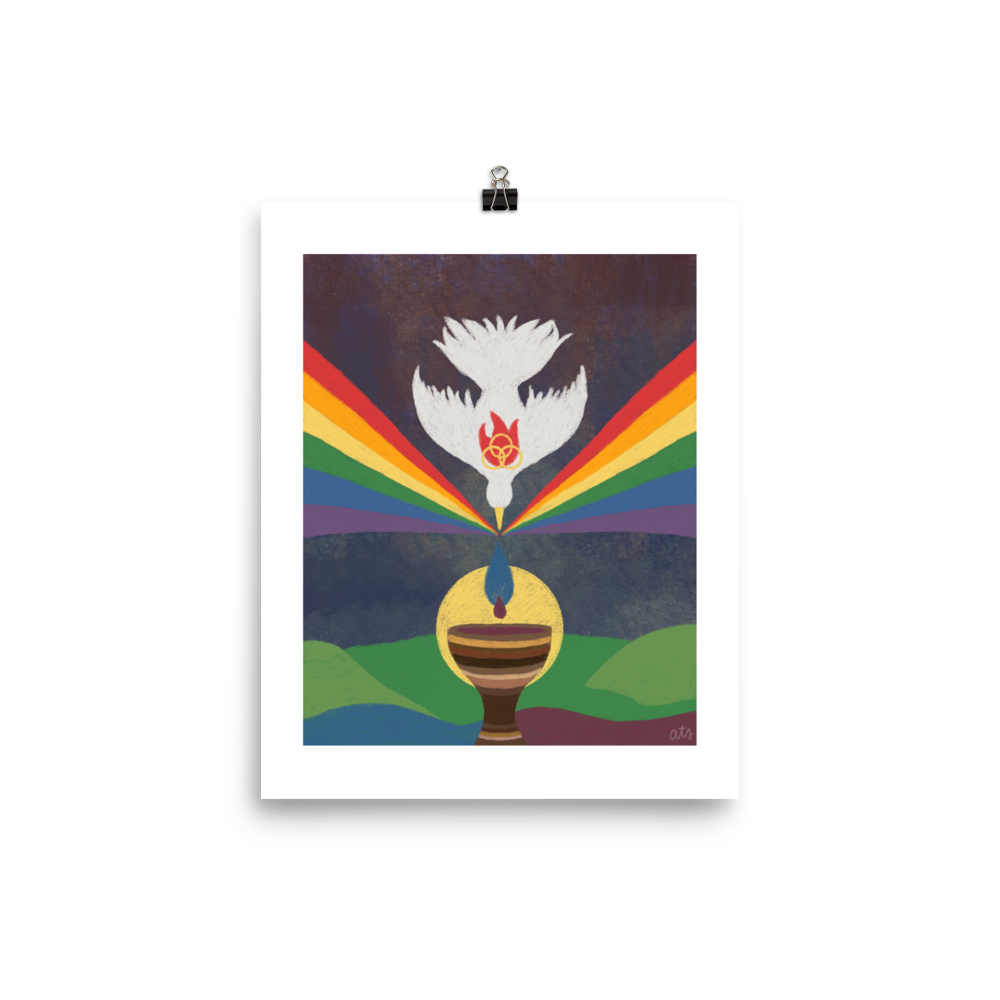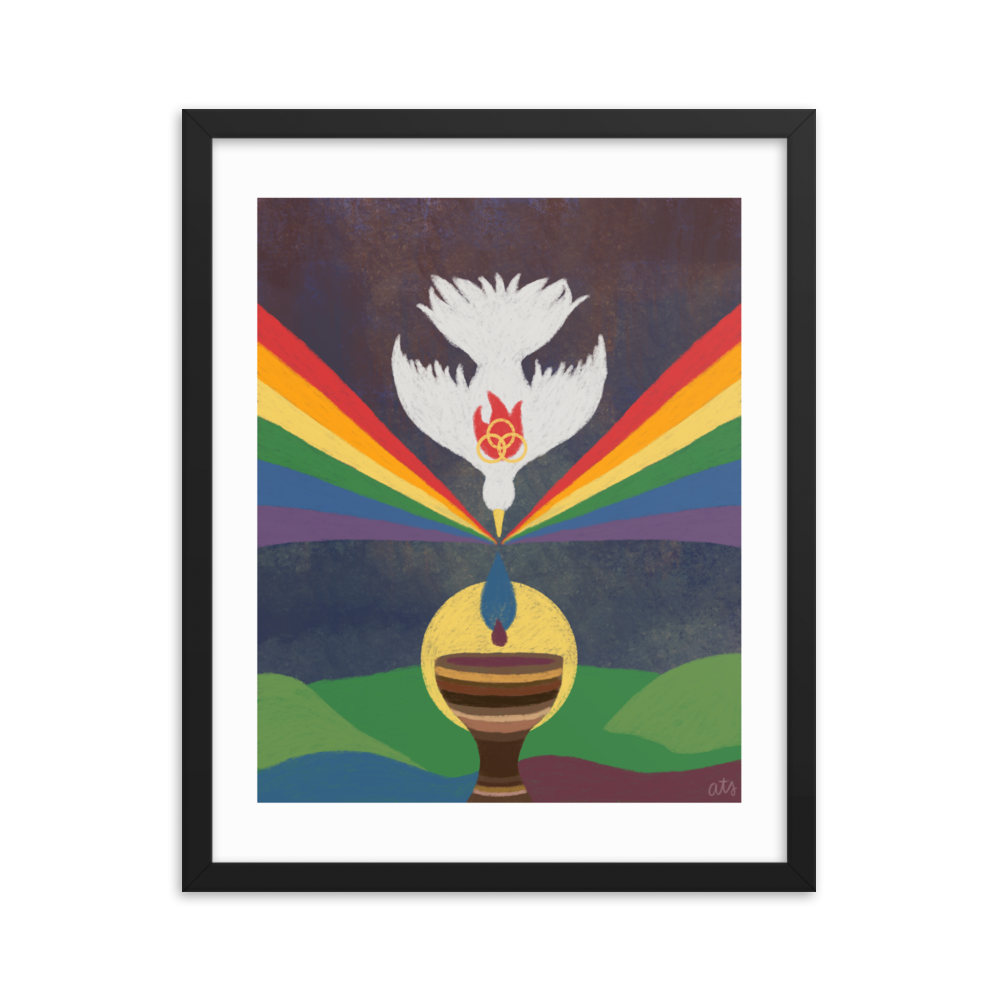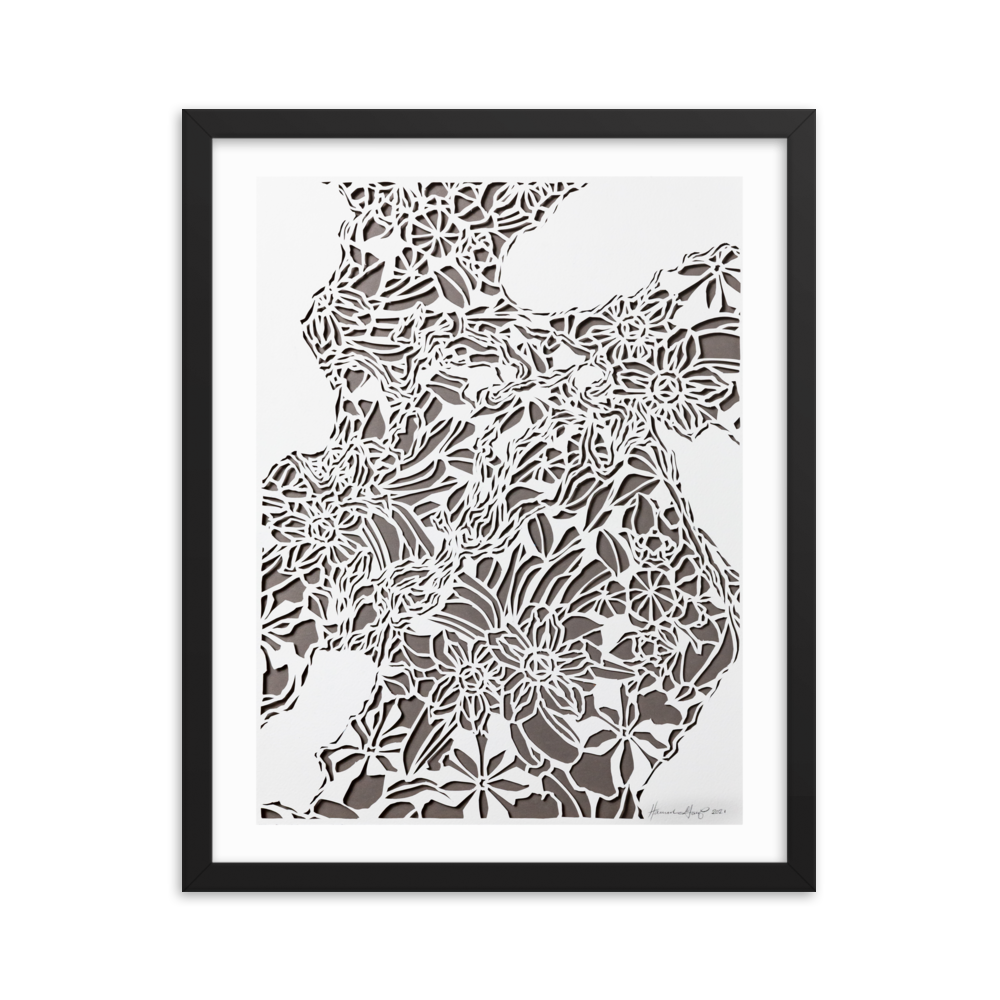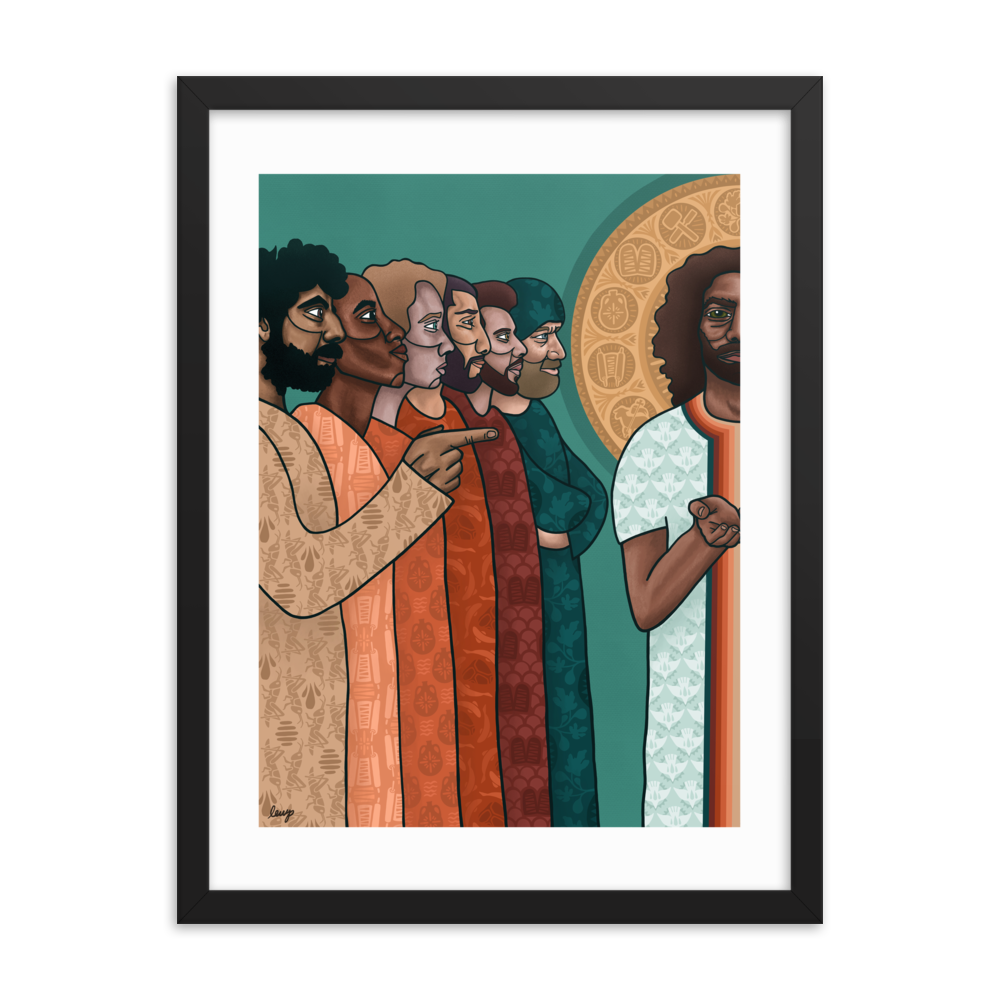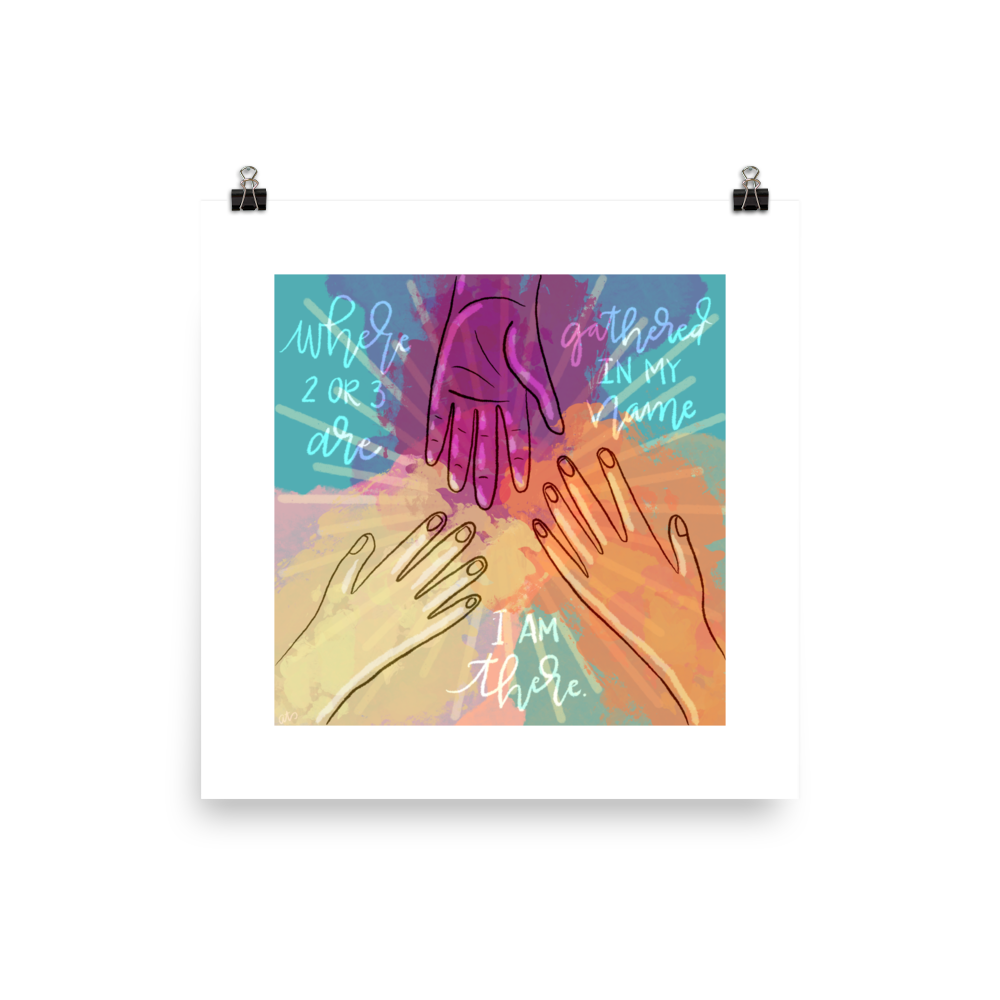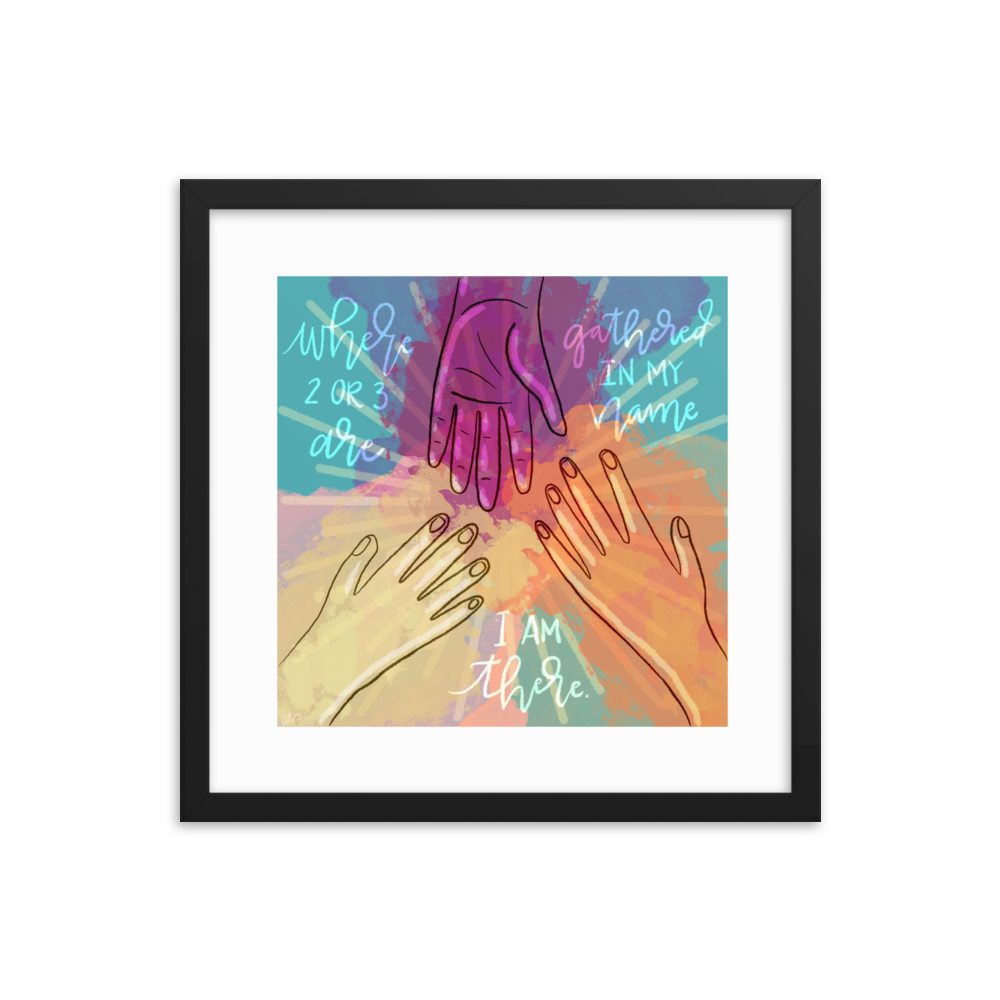Paul in Prison Print (2 Timothy) by Lauren Wright Pittman






Paul in Prison Print (2 Timothy) by Lauren Wright Pittman
Paul in Prison
Hand-carved block printed with oil-based ink on paper
By Lauren Wright Pittman
Inspired by 2 Timothy 4:9-18
Museum-quality poster made on thick, durable, matte paper. Unframed artwork will arrive rolled up in a protective tube.
Framing option available.
Print Details:
Museum-quality posters made on thick, durable, matte paper.
Paper is archival and acid-free.
Unframed prints arrive rolled up in a protective tube.
Frame Details:
Alder, Semi-hardwood frame
Black in color
.75” thick
Acrylite front protector
Lightweight
Hanging hardware included
Made in the USA
From the Artist:
Paul’s actions have returned to him. While in a position of power, as Saul, he persecuted people of faith, and now he sits alone at the end of his life, beaten and imprisoned for his own beliefs. It would make sense to me that Paul would be in turmoil, filled with guilt for his former actions, and troubled with resentment. He lists people who have abandoned him, which might have led him to instruct Timothy to right it all. However, Paul chooses another way: “May it not be counted against them!” (2 Tim. 4:16) Perhaps he is able to offer forgiveness because of the blinding forgiveness he himself received… maybe because he forgave himself too.
What does Paul need at the end of his days? He needs companionship, and he needs it quickly. He needs his cloak to wrap around his battered body and the company of books to keep his imagination engaged. He needs parchments to share his wisdom and to proclaim the Good News. He could’ve passed on bitterness to Timothy, but instead expresses gratitude for God’s provision. I believe the foundational need of this text is the need for forgiveness. Forgiveness transforms Paul’s life. It enables him to seek companionship and comfort instead of vengeance, and it is the essence of the message he carries.
In this block print, I carved Paul writing this letter to Timothy. The lines on his skin echo the twists and turns of his life while the lines on the page give him release. The cell bars obscure the view, however, the light of his halo and the power of his letter cannot be contained. His hand reaches just beyond one of the bars because in receiving forgiveness, reaching out for companionship, and letting go of guilt and resentment, he is free.
—Lauren Wright Pittman

